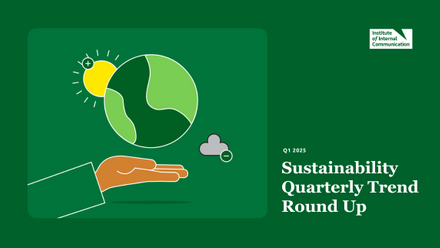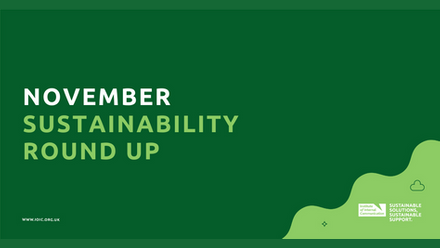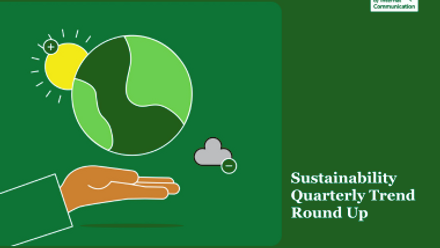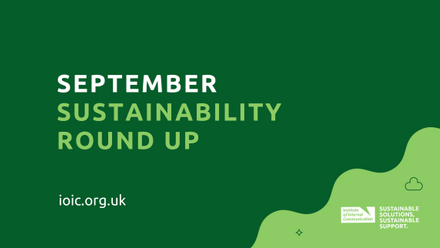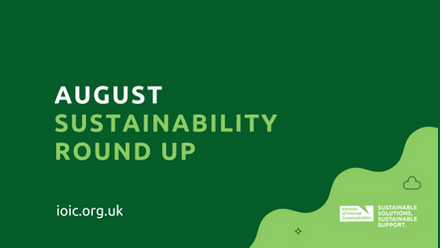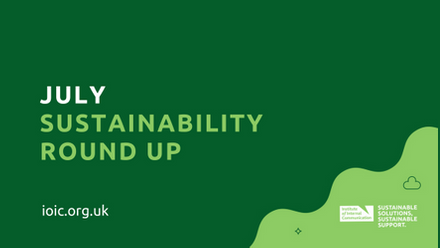Community sustainability
Many of us will have come across beauty industry brand Origins – it’s been around nearly 35 years after all, and its ethos has always been rooted in being good for its users as well as the planet.
But we might be less aware of an inspirational initiative it launched in 2009, known as the Origins Green the Planet™ fund. Designed to make the planet greener, one sapling at a time, and having planted an impressive 2.3 million trees to date, the programme now supports global community environmental groups.
Prioritising urban green belts, it introduces greenery to underserved city areas lacking the natural cover crucial for healthy ecosystems. It not only seeks to mitigate climate injustice, but fund educational initiatives that nurture future community stewardship, too.
Read about how its programme has evolved from simply planting trees to a more holistic approach benefiting communities and the wider environment.
Organisational sustainability
We will all be aware of greenwashing and, as communicators, will no doubt be alert to its dangers in today’s cut-throat operating environments.
However, organisations are increasingly concerned about another related challenge known as ‘greenhushing’ – a term for the growing number of brands and businesses that are overly-reticent when it comes to putting their net zero targets or activity in the public domain.
By failing to communicate the change that is actually occurring, we risk giving naysaying colleagues and those with their heads in the sand disproportionate leeway to put the brakes on much-needed sustainability-related conversations and initiatives.
So, we were interested to read this article by green entrepreneur and CEO of EdenLab, Leo Rayman, in which he proffers three key methods to ensure both greenwashing and greenhushing are kept well out of your organisation’s day-to-day activities.
Make no mistake, he argues, greenwashing is bad. But we shouldn’t underestimate the degree to which greenhushing is worse – and keeping quiet puts us all in danger. We like the point he makes about it being time to stop letting the pursuit of ‘perfect’ become the enemy of good, as this puts the kybosh on the urgent collaborative endeavours and progress that are needed.
Sustainability in business is uncharted territory – new, complex, and fraught with trade-offs. As we navigate these risks together, staying silent mutes a crucial dialogue. As IC professionals, why not encourage our colleagues to embrace the learning curve openly and with less trepidation? After, all working collaboratively benefits us all in the long run.
Economic sustainability
Unfettered growth at all costs just won't cut it these days if you want to run a responsible business. But we shouldn’t go thinking growth itself is the enemy, argues organisational guru and headhunter Orlando Martins.
He founded ORESA Executive Search and GrowthIndex.com, which celebrates the UK's fastest-growing companies. And he reckons financial success and positive impact can absolutely go hand-in-hand.
In fact, there's growing evidence they can be mutually beneficial. According to The Growth Index, three of the UK's top 10 fastest-growing firms are directly or indirectly focused on decarbonisation.
“Economic growth has powered a radical improvement in the quality of life for billions of people. Driven largely by business, growth remains the engine of progress and common prosperity, without which there cannot be true sustainability of any kind”, he says.
Proof you can do well by doing good, rather than simply producing more, is a key message we should be reminding our leadership teams about regularly.
Environmental sustainability
One of the frustrations of contemporary consumer culture is the degree to which inbuilt obsolescence – whereby many manufacturers deliberately make their products hard to repair – has become commonplace.
This of, course, leads to more waste, something that is harder to justify against the wider backdrop of the climate emergency.
The EU has recently adopted new ‘right to repair’ rules forcing brands and businesses to make products easier to fix. Initially covering household goods like phones and washing machines, this inspirational directive could save consumers billions while preventing millions of tonnes of CO2 emissions.
Looking at the bigger picture, there are learnings here not just for the day-to-day products we use, but also for bigger ticket items in our lives, such as new buildings, and even infrastructure.
A genuinely low-carbon economy requires a widespread culture of care, maintenance and mending – and if consumers are going to increasingly expect this, as communication experts, we need to be live to what we can learn from this both inside and outside of our organisations.
Personal sustainability
A recent survey conducted by The Guardian revealed that almost one-fifth of the female climate experts who responded have chosen not to have children – or to have fewer children – due to the global climate emergency.
The newspaper approached every contactable lead author or review editor of all IPCC – the gold standard of climate knowledge – reports since 2018. Of the 843 contacted, 360 responded to the question on life decisions, a high response rate.
Many of the female scientists surveyed made their decisions about not having kids when they were younger, and the grave dangers wrought by climate chaos were less obvious than they are today.
They cite not having wanted to contribute to the growing human population that is exacting a heavy environmental toll, while some also expressed fears about the uncertainty any children they might have had would have faced in the future.

